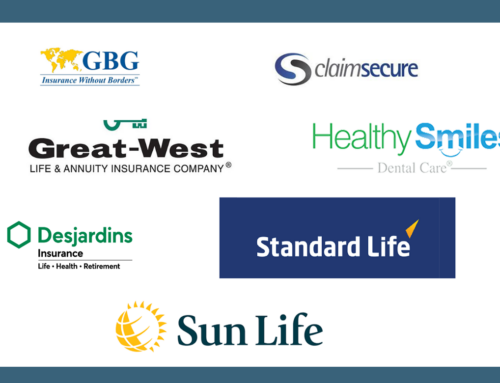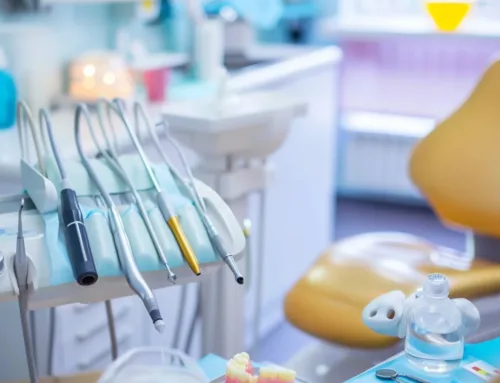Warning Signs of Dental Problems
Dental issue like cavities or tooth decay might feel as if they just appeared out of nowhere, but, in most cases, there were hints along the way. Rarely does someone just wake up with sore gums or a cracked tooth. The key to good oral health is to recognize the warning signs especially the early ones.
Who wouldn’t want to avoid having to undergo a root canal or having to wear a nightguard every time they sleep? If you know what symptoms to look for, there’s a good chance your dental problems can be treated successfully. This can result in a patient saving money and not having to experience unnecessary pain.
What are the early warning signs and what can happen if they go undetected? We’ll look at the symptoms of common dental problems so you know what to look for. This will help you avoid having to deal with serious issues in the future and make sure you live pain-free and with healthy teeth and gums.
Gum Disease
Gum disease, also known as periodontal disease, occurs when the gums separate from the teeth creating pockets that fill with bacteria. Bacteria then creates plaque that spreads throughout the gums and forces the immune system to try to fight the outbreak. If plaque persists, tissue can weaken causing teeth to loosen and eventually fall out.
Gum disease can cause:
- Bone loss
- Teeth to shift
- Bleeding and pus
- Gum recession
- Gum and teeth sensitivity
Gum disease develops in four stages beginning with gingivitis and then progressing through slight, moderate and advanced stages.
The early warning signs include:
- Swollen and red gums
- Bad breath
- Bleeding while flossing
If you are only experiencing these symptoms, the good news is that the issue is treatable and can be reversed with an improvement in your personal oral hygiene and with a professional cleaning.
If gingivitis has reached the slight or moderate stage, the warning signs include:
- Increased redness in the gums
- Excessive bleeding when brushing or flossing
- Bad breath that has grown considerably worse
At this stage, you should visit your dentist to receive treatment, which can include scaling and root planning to remove the bacteria deposits.
If you ignore the early warning signs, gingivitis can reach an advanced stage, at which point, the warning signs are clearer because they are more severe:
- Gums that are swollen, extremely red and oozing
- Gums have receded
- A sensitivity to anything cold
- Consistent and horrible bad breath
- Pain while chewing
- Mouth sores
- Pus between the teeth and gums
- Spaces between teeth
It’s important to recognize the signs that something is wrong with your gums, so that issues like gingivitis don’t move beyond the easily treatable first stage. If left untreated, you could suffer tooth loss and be forced to undergo much more serious procedures to repair the damage.
Cavities
The early warning signs of a cavity are straightforward. If you are experiencing any type of toothache, general mouth soreness or spontaneous pain or sensitivity, then you may have a cavity. Even mild pain while eating something sweet, hot or cold should be considered a sign. Another red flag is staining on the surface of your teeth.
All toothaches should be examined by a dentist as it could also mean the patient has an abscess or impacted tooth. These ailments need to be treated immediately to prevent a tooth from dying and having to be removed.
Tooth Decay
Tooth decay is one of the most common dental problem in North America. If you notice that your teeth hurt while consuming a hot or cold drink, you may have sensitive teeth, which is an early red flag for tooth decay.
Other symptoms include:
- Grey, black or brown spots on your teeth
- A consistent unpleasant taste in your mouth
Tooth decay can be successfully treated during its early stages. It’s advised to book an appointment with your dentist once you first notice a sign.
Cracked or Broken Tooth
Cracked or broken teeth can occur when a person bites down on a piece of hard food or if they are prone to excessive grinding. It can also be the result of an injury to the mouth.
These issues can worsen and result in a patient needing to have a tooth removed. If the pain is severe enough it can make chewing and biting more challenging and can complicate one’s ability to swallow. Ultimately, if left untreated, it will have a negative impact on your daily life.
People often have a cracked or broken tooth without realizing it as the symptoms are inconsistent. This also makes it tough for a dentist to locate the crack. Because of this, it’s important to be extra diligent with respect to looking for the early warning signs.
You should be cognizant of the following:
- Pain ranging from mild to moderate while chewing, biting or swallowing.
- Swollen gums. This will most likely be located around the cracked tooth.
- Teeth that are suddenly sensitive to anything sweet, hot or cold.
- Inconsistent pain. If a pain in your mouth has gone away, do not think that you’re in the clear.
- General discomfort around the teeth and gums.
There are several treatment options to fix cracked or broken teeth if detected early enough. If left untreated, you might be looking at having to replace the affected teeth, which can be painful and costly.
Oral Cancer
Like any form of cancer, oral cancer is serious enough that you should always be on the lookout for the early warning signs.
If you experience any of the following, we’d recommend immediately visiting your dentist for examination:
- Pain, numbness or tenderness anywhere in your mouth including your lips.
- Painful sores or a growth in your mouth or throat that will not heal.
- Red sores or spots that are white or a mixed colour.
- Trouble biting, chewing, swallowing or speaking.
- Difficulty with moving your tongue or jaw.
- If your teeth line up awkwardly when your mouth is closed or if you feel like your teeth are lining up differently than before.
- If you struggle to comfortably open your mouth.
- Excessive saliva
At Georgian Dental, oral cancer screenings are a vital part of every checkup. It’s important to recognize the signs and, if any are present, to begin treatment right away.
Teeth Grinding
A person can grind their teeth while awake or asleep. It can be a by-product of stress and anxiety and can result in a host of serious dental issues. Luckily, this is a problem that can be easily spotted without the help of a professional.
The warning signs include:
- Aches in your jaw or general mouth area
- Stiffness around the jaw or mouth
- Ear pain
- Headaches
The long-term consequences of not treating teeth grinding or excessive jaw clenching include tooth sensitivity, cracked roots or tooth loss.
Book an Appointment Today!
If you think you are experiencing any of the signs of a dental issue, don’t hesitate to visit your dentist. Early diagnosis is paramount to effective treatment and by tackling the problem early, you don’t have to live with pain and discomfort.
Appointment Request
If you’re interested in any of our procedures, and would like to meet with one of our dentists to discuss options, costs and get additional information, complete this short form and we’ll give you a call to arrange for a no-obligation appointment at our Barrie clinic.










